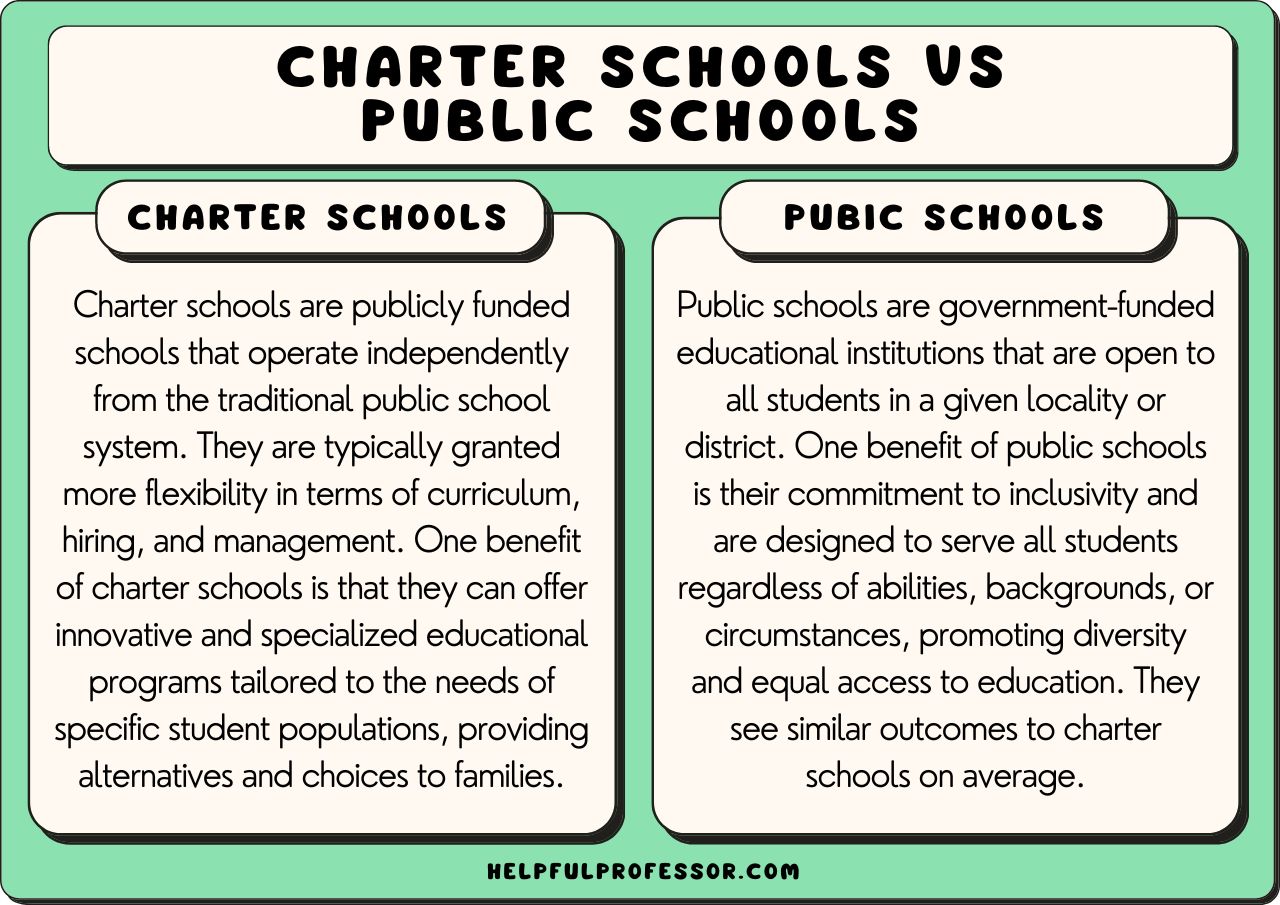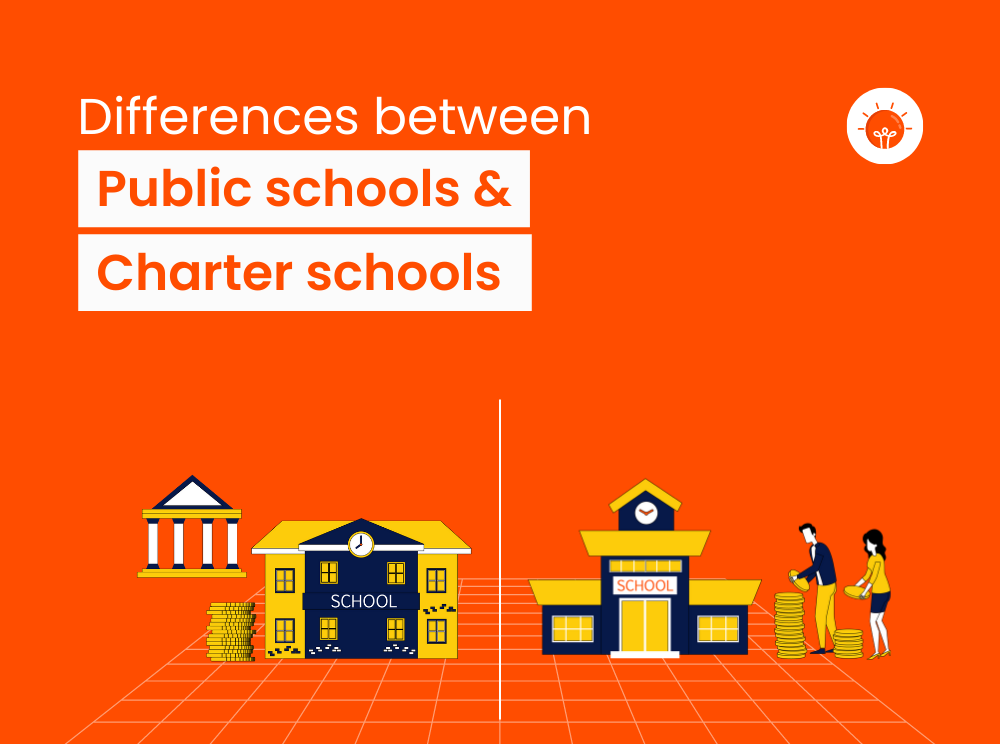Constitution Colleges: A Deep Dive into Definition, Operation, and Affect
Associated Articles: Constitution Colleges: A Deep Dive into Definition, Operation, and Affect
Introduction
With enthusiasm, let’s navigate by the intriguing subject associated to Constitution Colleges: A Deep Dive into Definition, Operation, and Affect. Let’s weave attention-grabbing data and supply contemporary views to the readers.
Desk of Content material
Constitution Colleges: A Deep Dive into Definition, Operation, and Affect

Constitution colleges characterize a big and infrequently controversial component throughout the broader panorama of public training. Their very existence hinges on a elementary reimagining of the normal public faculty mannequin, promising innovation and elevated accountability whereas concurrently sparking debates about fairness, funding, and the very nature of public training itself. Understanding constitution colleges requires a nuanced exploration of their definition, operational construction, and the multifaceted impacts they’ve on college students, communities, and the academic system as an entire.
Defining Constitution Colleges: A Contract with the Public
At its core, a constitution faculty is a publicly funded however independently operated faculty. This seemingly easy definition belies a posh actuality. The "publicly funded" facet underscores that constitution colleges obtain taxpayer {dollars}, distinguishing them from personal colleges that rely totally on tuition charges. Nonetheless, in contrast to conventional public colleges ruled instantly by faculty districts, constitution colleges function underneath a "constitution," a contract negotiated with a chartering authority—usually a state authorities, a college district, or a specifically designated constitution faculty board. This constitution outlines the college’s mission, instructional program, governance construction, and accountability measures.
The constitution serves as a blueprint, granting the college autonomy in trade for particular commitments. This autonomy extends to varied facets of college operation, together with:
- Curriculum design: Constitution colleges typically have better flexibility in curriculum improvement than conventional public colleges, permitting them to include specialised applications, modern educating methodologies, or a specific pedagogical strategy (e.g., Montessori, STEM-focused).
- Instructor hiring and compensation: They could have extra latitude in hiring lecturers and designing compensation packages, probably attracting expertise by aggressive salaries or advantages.
- Pupil choice: Whereas many constitution colleges function on a lottery system to make sure equitable entry, some might have targeted missions attracting college students with particular wants or skills, probably resulting in selective admissions processes.
- Finances administration: Constitution colleges typically have better management over their budgets, though accountability mechanisms are in place to make sure funds are used successfully and transparently.
The "independently operated" facet emphasizes the excellence from conventional public colleges. Whereas publicly funded, constitution colleges are usually managed by a non-profit group, a for-profit entity (although that is much less widespread and infrequently topic to stricter laws), or a group group. This impartial administration permits for better flexibility and innovation but in addition raises questions on oversight and accountability.
The Evolution and Variations of Constitution Colleges:
The constitution faculty motion originated within the early Nineties in Minnesota, aiming to offer alternate options to conventional public colleges and foster innovation in training. Since then, the mannequin has unfold throughout america, with vital variations of their construction, governance, and accountability mechanisms throughout totally different states.
- Authorizing Entities: The entity liable for granting and overseeing the constitution varies considerably. Some states have centralized constitution authorizers on the state degree, whereas others delegate this duty to native faculty districts or specialised boards. This variation impacts the extent of oversight and the kinds of colleges which are licensed.
- Faculty Varieties: Constitution colleges embody a various vary of instructional approaches. Some give attention to particular educational disciplines (e.g., STEM, arts), whereas others cater to college students with explicit studying types or wants (e.g., particular training, gifted applications). Some are geared in the direction of particular demographics or communities.
- Funding Fashions: Whereas primarily publicly funded, the specifics of funding mechanisms differ. Some states present per-pupil funding much like conventional public colleges, whereas others make use of totally different funding formulation. This could result in funding disparities between constitution and conventional public colleges.
- Accountability Mechanisms: The strategies used to carry constitution colleges accountable for pupil efficiency and monetary administration additionally fluctuate significantly. Some states have rigorous efficiency requirements and penalties for underperforming colleges, whereas others have much less stringent accountability measures.
The Debate Surrounding Constitution Colleges: Advantages and Criticisms
Constitution colleges have generated appreciable debate, with proponents highlighting potential advantages and critics elevating considerations about fairness and effectiveness.
Arguments in Favor of Constitution Colleges:
- Elevated Innovation and Selection: Proponents argue that constitution colleges supply elevated innovation in educating strategies, curriculum improvement, and faculty administration, offering dad and mom with better selection in training choices for his or her kids.
- Improved Pupil Outcomes (in some instances): Some research recommend that sure constitution colleges have demonstrated improved pupil outcomes, significantly for college students from deprived backgrounds. Nonetheless, it is a extremely debated level, with vital variation in outcomes throughout totally different colleges and research.
- Accountability and Competitors: The constitution mannequin fosters competitors amongst colleges, incentivizing them to enhance their efficiency to draw college students and preserve their charters. This competitors, proponents argue, can drive total enhancements within the training system.
- Addressing Particular Wants: Constitution colleges can cater to particular pupil wants, providing specialised applications for presented college students, college students with studying disabilities, or these concerned with particular educational areas.
Criticisms of Constitution Colleges:
- Fairness Considerations: Critics argue that constitution colleges can exacerbate current inequalities, significantly concerning entry and useful resource allocation. Selective admissions insurance policies, geographic limitations, and waitlists can disproportionately have an effect on low-income college students and college students of coloration.
- Lack of Transparency and Accountability: Considerations exist concerning the transparency and accountability of some constitution colleges, significantly these operated by for-profit entities. Questions come up about the usage of public funds and the oversight of college operations.
- Cream-Skimming: Some critics argue that constitution colleges have interaction in "cream-skimming," selectively enrolling high-achieving college students whereas abandoning college students with better educational wants in conventional public colleges. This could negatively affect the general efficiency of conventional public colleges.
- Funding Points: The funding mechanisms for constitution colleges may be advanced and inequitable, probably resulting in disparities in sources between constitution and conventional public colleges. This could create an uneven enjoying subject.
- Instructor High quality and Retention: Whereas some constitution colleges appeal to gifted lecturers, others wrestle with instructor retention and should not supply aggressive salaries or advantages.
Conclusion: A Advanced and Evolving Panorama
Constitution colleges characterize a multifaceted and dynamic part of the American training system. Their affect is advanced and far-reaching, with each potential advantages and vital challenges. The controversy surrounding their effectiveness, fairness, and accountability continues to evolve, requiring ongoing analysis, coverage changes, and a dedication to making sure that every one college students, no matter background or location, have entry to high-quality training. An intensive understanding of the definition, operation, and affect of constitution colleges is important for knowledgeable discussions and efficient policymaking geared toward enhancing instructional alternatives for all kids. Future analysis ought to give attention to longitudinal research evaluating constitution and conventional public colleges, paying shut consideration to fairness points and the long-term outcomes for college students. Moreover, ongoing monitoring and analysis of constitution faculty efficiency, coupled with strong accountability mechanisms, are essential to make sure that these colleges fulfill their promise of offering modern and efficient instructional alternatives for all college students.








Closure
Thus, we hope this text has offered beneficial insights into Constitution Colleges: A Deep Dive into Definition, Operation, and Affect. We thanks for taking the time to learn this text. See you in our subsequent article!